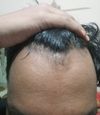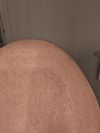community Losing a ton consistently after 8 months dut please help me I don’t know what to do anymore, nothing works
A 20-year-old is experiencing hair loss despite using dutasteride and oral minoxidil. Suggestions include consulting a specialist, considering RU58841, and checking for other conditions and vitamin deficiencies.

